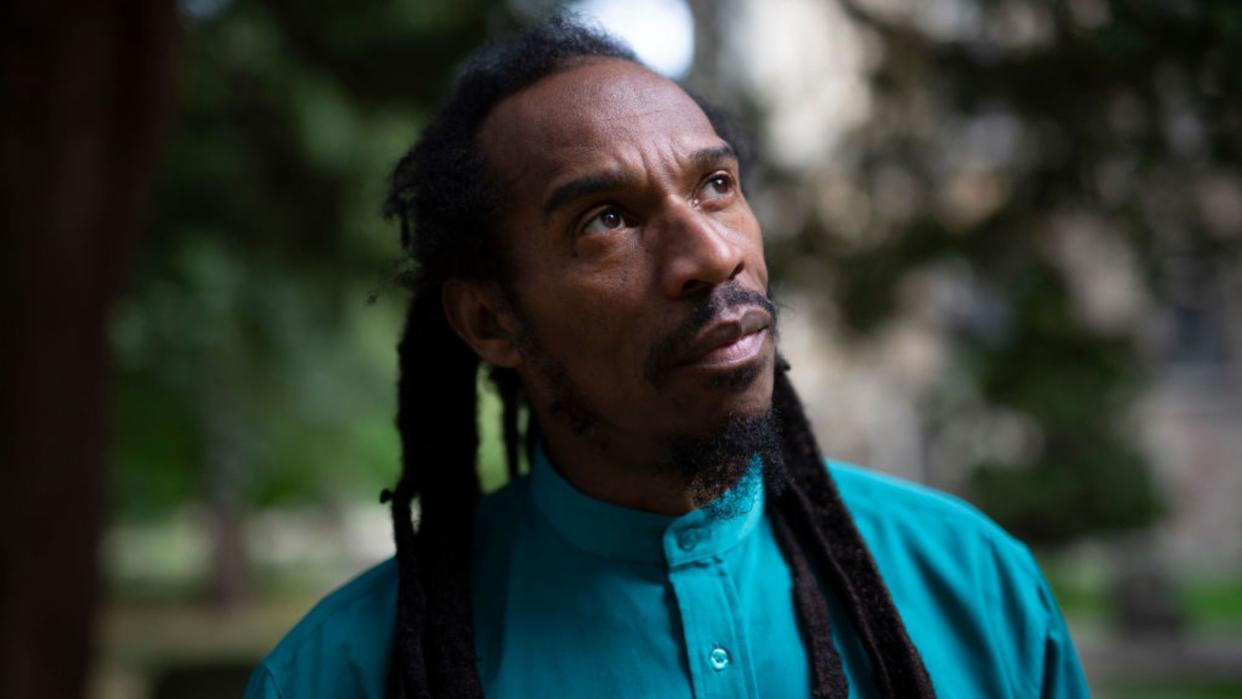Benjamin Zephaniah: trailblazing writer who 'took poetry everywhere'

- Oops!Something went wrong.Please try again later.
Benjamin Zephaniah, who has died of a brain tumour aged 65, was among Britain's most prominent poets. Referred to as the "people's laureate", he was once voted the country's third-favourite poet, after T.S. Eliot and John Donne. His dub poetry, sometimes performed to a reggae backbeat, could be humorous, but it was angry too, dwelling as it did on racism and other forms of injustice.
Zephaniah was a radical, said The Times – and he resisted attempts to co-opt him into the establishment. In 2003, he refused an OBE, saying he detested the idea of empire and explaining, in his poem Bought and Sold: "Smart big awards and prize money/ Is killing off black poetry… Tamed warriors bow on parades/ When they have done what they've been told/ They get their OBEs."
Yet he never lost the affection of the wider public, said Hugh Muir in The Guardian, perhaps because he had "moral clarity, but also wit and a sense of mischief that made you smile even if he wasn't doing what you wanted or saying anything you agreed with".
Early years
He was born Benjamin Springer in Birmingham in 1958, the son of Oswald, a postal worker from Barbados, and Leneve, a nurse from Jamaica. The oldest of eight children, he experienced racism from a young age (when he was six someone threw a brick at his head) and violence at home too. He recalled: "I once asked a friend of mine, 'What do you do when your dad beats your mum?' And he went: 'He doesn't.' I said, 'Ah, you come from one of those, like, feminist houses. So, what do you do when your mum beats your dad?'"
When he was ten, his mother fled after a particularly savage beating, taking him with her. Moving from one lodging to another to avoid his father, they lived a hand-to-mouth existence, said The Guardian. Dislocated from his family, he fell in with gangs. He was expelled from school at 13, he spent time in a borstal and was jailed for burglary. "Poetry, Rastafarianism and an iron will were his salvation." Having realised that if he didn't make radical changes, he'd spend his life in jail – if he survived at all – he moved, aged 22, to London to become a poet.
He was dyslexic, and couldn't write properly, but he had been creating and performing poems since early childhood. When he was 15, an elder at his church decreed that his facility for language was prophet-like, and dubbed him Zephaniah, meaning "treasured by God".
Establishing his voice
In London, he found himself part of the punk, comedy and reggae scenes, just as the Thatcher era was dawning, and anger about racism was exploding into race riots. His first volume, "Pen Rhythm", was published in 1980; he persuaded bands such as The Clash to let him open for them; and his first album of dub poetry came out in 1982.
He produced more than a dozen books of poetry and seven albums, several novels, some for children, and performed all over the UK and beyond: his mission, he said, was to "take poetry everywhere". He hosted a concert at the Albert Hall in 1996 at the request of Nelson Mandela, and he acted: most recently in TV's "Peaky Blinders".
His campaigning took in everything from animal rights to justice for the victims of the Grenfell Tower disaster. Even his children's poems were political. One, "Talking Turkeys", reflected his veganism and begins: "Be nice to yu turkeys dis christmas/ Cos' turkeys just wanna hav fun/ Turkeys are cool, turkeys are wicked/ An every turkey has a Mum."
He served as writer in residence at Keats House (he cited Keats and Shelley among his favourite poets), and as professor of creative writing at Brunel University. In 2002, he produced a collection of poems celebrating Britain's diversity. "I gotta say I love this country, though I rail against it all the time," he said.
In 1990, he married Amina, a theatre administrator. They were unable to have children, as he was infertile, nor could they adopt, because of his criminal record. They divorced in 2001.

